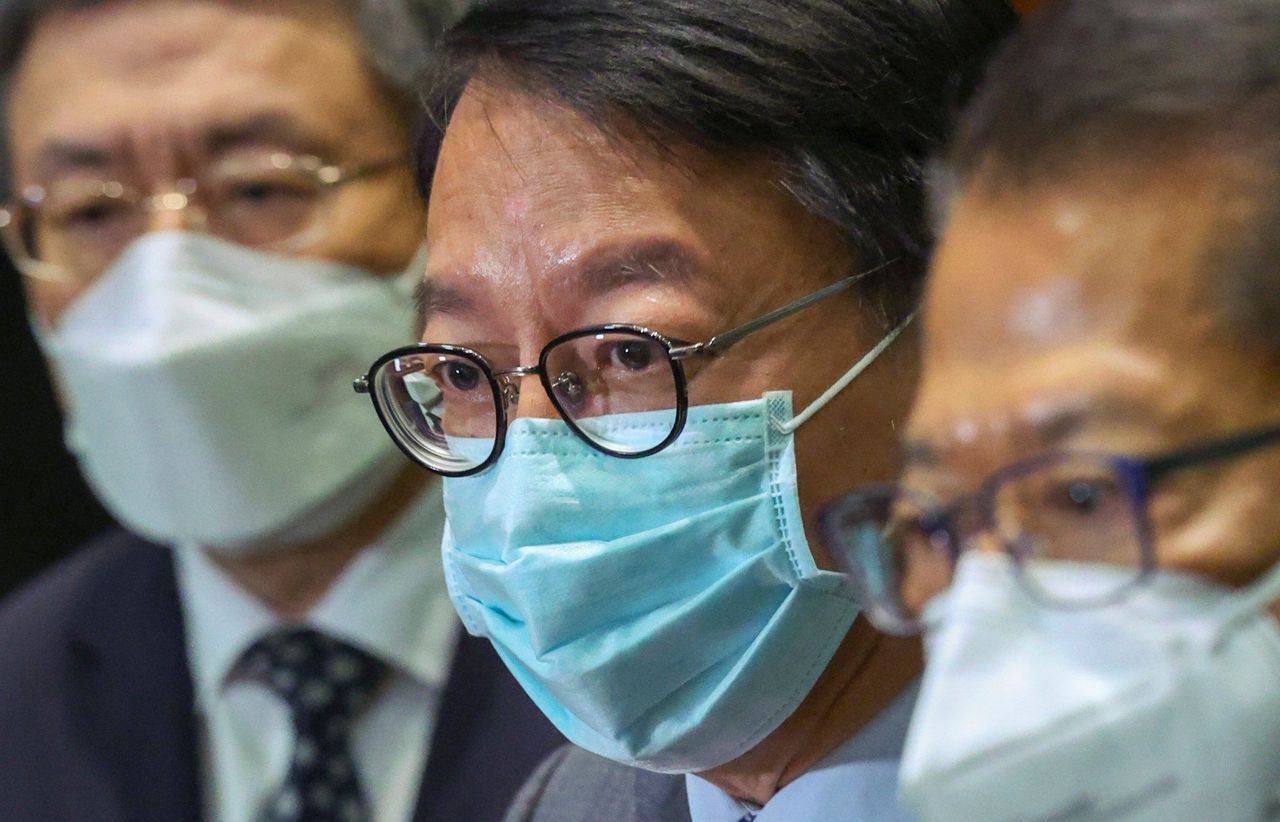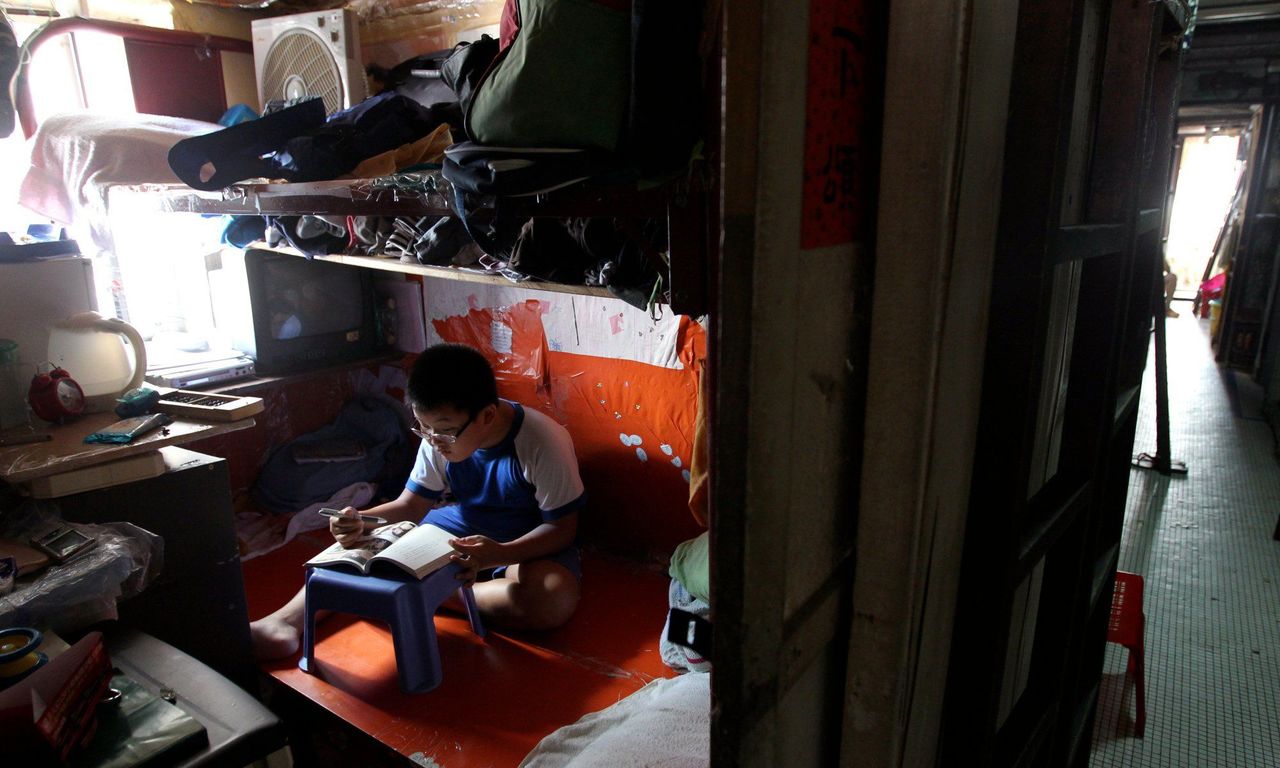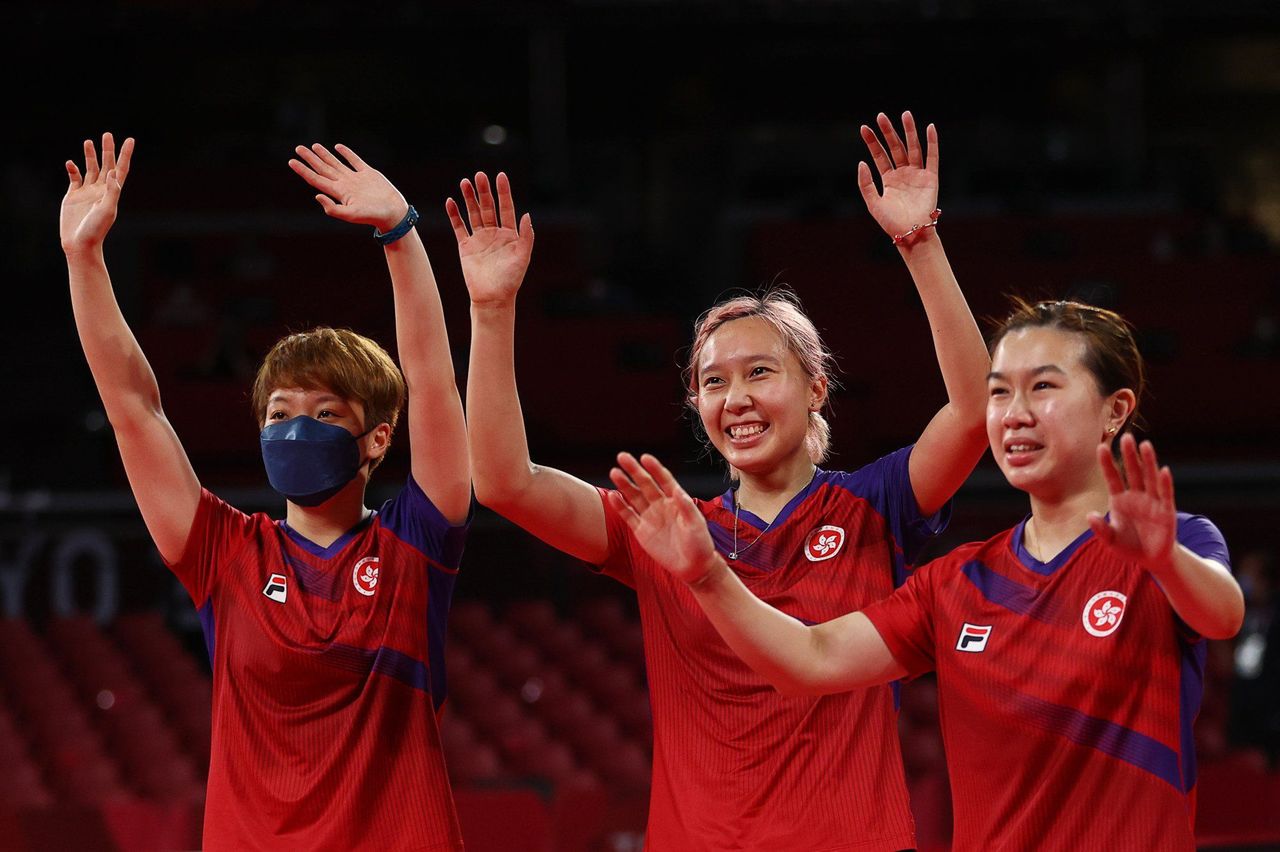Hong Kong News

Hong Kong Olympians to act as tutors to poor pupils in scheme to fight poverty
Four Hong Kong Olympic medallists have been invited to act as tutors to junior secondary school pupils living in subdivided flats under a new scheme to tackle cross-generational poverty, the city’s No 2 official has announced.
They are fencing gold medallist Edgar Cheung Ka-long, and women’s table tennis team members Doo Hoi-kam, Minnie Soo Wai-yam and Lee Ho-ching, who took home a bronze at the 2020 Tokyo Games.
Chief Secretary Eric Chan Kwok-ki, who is leading a new high-level anti-poverty task force, on Monday said the pilot “Strive and Rise Programme” aimed to help 2,000 underprivileged students with financial and career planning, enhance their communication skills and expand their social network.
 Chief Secretary Eric Chan (centre).
Chief Secretary Eric Chan (centre).
“These star tutors will increase the attractiveness of the scheme, so that grass-roots students will no longer feel that their development will be restricted by their network,” he said.
“Some may ask why only 2,000 students will benefit. This is a trial programme. We will expand it to cover more students after an ongoing review.”
The scheme is set to launch in October and expected to last a year.
The task force, one of the priorities raised by city leader John Lee Ka-chiu when he took office in July, is part of the new government’s efforts to alleviate poverty. Three other task forces, each led by a top official, were set up on land supply, public housing and district affairs.
According to Chan, under the first phase of the subsidy scheme, a start-up sum of HK$5,000 will be given to 2,000 Form One to Three students who live in subdivided flats – tiny and often windowless homes plagued by hygiene and fire safety issues.
If more than 2,000 applications are received, preference will be given to Form Three students.
 Hong Kong is notorious for its subdivided flats.
Hong Kong is notorious for its subdivided flats.
Authorities will invite commercial organisations and professional bodies to nominate mentors, who will assist students recruited through community groups and schools with life planning and how to make best use of the subsidies donated by the business sector.
“We hope to recruit more younger mentors, because they can communicate better with the mentees. They should have a job and can arrange job shadowing,” Chan said.
“We hope the mentors can also be able to share with their mentees how they faced difficulties in order to help mentees develop a positive attitude.”
Upon completion of the programme, another HK$5,000 will be awarded to students to fund their personal pursuits.
Others who have agreed to join the scheme as tutors are Dr Lo Yuen-yi, the University of Hong Kong’s associate dean of faculty of education, Hong Kong Harmonica Association founder Ho Pak-cheong, renowned conductor Yip Wing-sze and violinist Yao Jue.
Lo would give language lessons while the three musicians would teach music and how to play instruments, Chan said.
Activities for pupils would include group visits to public utilities, government departments and museums. There are also plans for them to take a short flight.
There will also be compulsory training for students, including communication skills and financial planning. Mentors and parents will also be given training.
Pupils can also choose to take classes in Chinese or English language, sports and music, as well as social etiquette, according to Chan.
According to a government report, as many as 1.65 million residents, or roughly 24 per cent of the population, lived in poverty in 2020, up from 21 per cent in 2019. About 275,000 children aged below 18 lived in poverty before government intervention, up from 253,00 in 2019 and 235,000 in 2018.
It also represented a poverty rate of 27 per cent among children, up from 24.9 per cent in 2019 and 23.3 per cent in 2018.
The government estimates the city has about 110,000 subdivided flats – with more than 220,000 occupants – mostly in dilapidated buildings in Kowloon and the New Territories. Most are rented by singles or couples, but occupants also include single parents and their children, and even three-generation households.
Form Three pupil Kelly Lee said that while she would be interested in joining the programme, the quota was too small, the duration too short and the HK$10,000 subsidy too little.
“This is not a form of long-term support, it is more of a short- to medium-term subsidy,” said the 14-year-old who lives in a subdivided flat.
 Medal winners Doo Hoi-kam (left), Minnie Soo and Lee Ho-ching will act as tutors.
Medal winners Doo Hoi-kam (left), Minnie Soo and Lee Ho-ching will act as tutors.
Using her own violin lessons as an example, she said a new instrument would cost at least HK$10,000 and the average fee for a class was around HK$300 to HK$400.
She said she hoped the scheme would allow her to gain a better understanding of her future career path, as well as visit events and places she had rarely been to such as concerts or theme parks.
Sze Lai-shan, deputy director of the Society for Community Organisation, said the scheme was a move in the right direction but the one-year period was not long enough for mentors and mentees to develop a relationship.
She said the subsidy should be increased to HK$20,000 per student and more should be allowed to join. “This is why we are saying the breadth and depth of the programme is not enough,” Sze added.
More broadly, she said she believed the government should address problems such as the issue of the working poor and insufficient education funding and housing support for low-income students and their families.
Lawmakers welcomed the pilot scheme. But Bill Tang Ka-piu of the Federation of Trade Unions urged the government to continue to track the progress of students after they completed the programme.
“A common problem of government-coordinated schemes is that there are often no follow-ups,” he said. “Efforts will be wasted if those students’ needs are not addressed after the pilot scheme is completed.”











